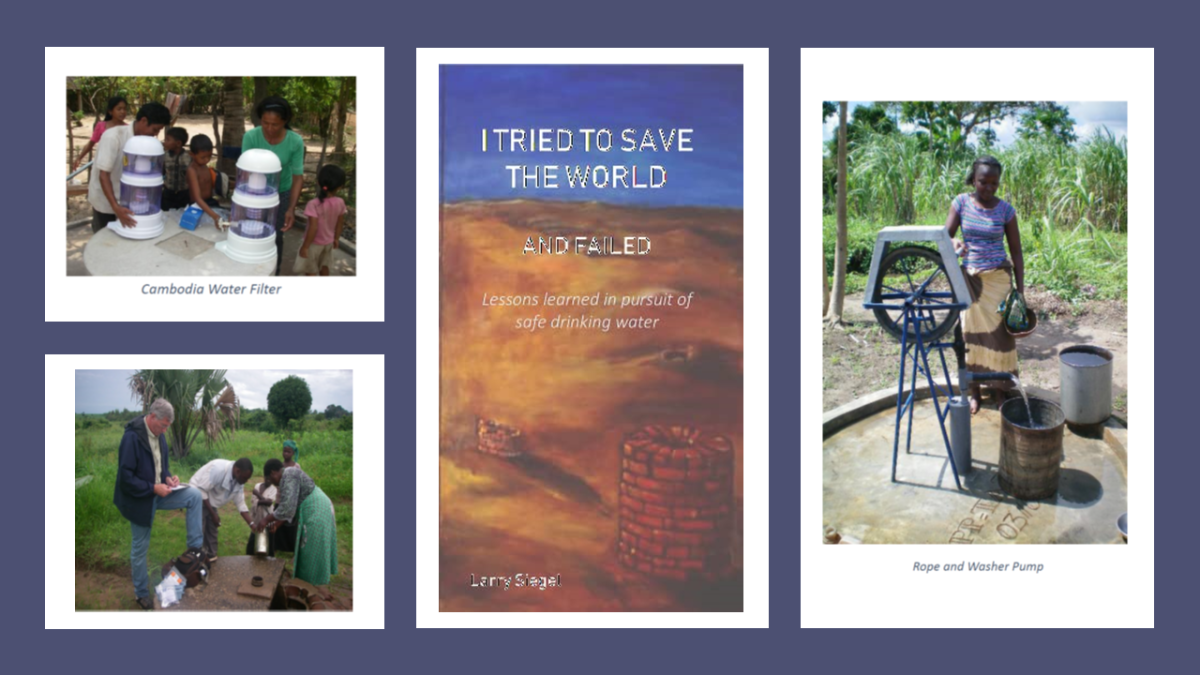by Larry Siegel
My book, I Tried to Save the World and Failed, reflects on a time and effort to find rural water solutions in Mexico, Malawi and Cambodia that could be used everywhere. The effort started during the Vietnam war while working on an Army Civil Affairs team. There I was confronted with the reality that not everyone turns on the tap and drinks good water. Several of the rural communities I worked in desired more water, cleaner water, and more convenient water. Echoes of that experience grew from travels in later years.
A drinking water partnership formed when as a Congressional staffer I worked on the Safe Water Act of 1974. Years later I joined with a few of those colleagues to form Safe Water International (SWI), which had dreams of a silver bullet solution for the billion or so citizens around the world with only contaminated water to drink.
SWI put Rotary funds and private donations to the task of seeking that silver bullet through rural drinking water projects in Mexico, Malawi, and Cambodia. As these projects moved from one country to the next, it became clear that every rural drinking water project demanded a long-term commitment to the project community.
It is said that 35% of water well projects break down or are abandoned by users. Sad to say, the work of SWI in three countries met this unfortunate goal. As a consequence, I Tried to Save the World seeks to identify lessons learned from those drinking water efforts in remote rural communities. The observations that result come largely from field work and then from reflection in succeeding years on the successes and failures of those projects.
The book closes with a set of lessons aimed at sustainability. The lessons are not meant to be the final word. It is hoped they will provoke discussion on how to go about achieving project sustainability.
While there are stories of disappointment, there is also praise for the commitment and perseverance of all who undertake work to improve the health and sanitation of those desperately in need of help. The closing anthem of the book is “Help is Help.” Even unsuccessful projects can bring life-long benefits to those who for some short space of time have safe water and good sanitation.

